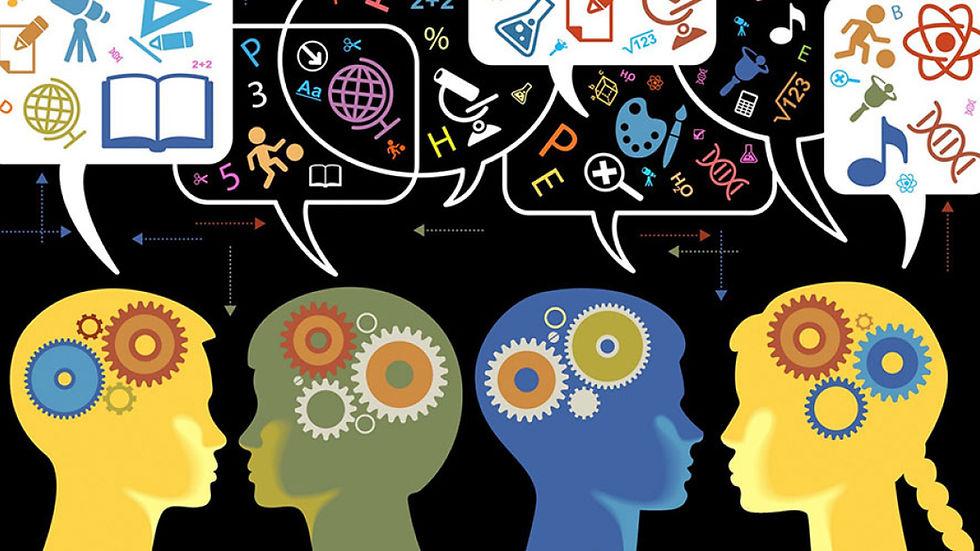College students can't -- or won't -- read, say profs
- Joanne Jacobs

- May 20, 2024
- 2 min read
Many college students don't read very well, their professors say. And they don't think they should have to work very hard. "Some struggle with reading endurance and weak vocabulary," writes Beth McMurtrie in the Chronicle of Higher Education. Others aren't willing to struggle.

Furthermore, "a significant number of those who do the work seem unable to analyze complex or lengthy texts," say professors at colleges ranging from Wellesley to Cal State LA. Students don’t seem to "have the context to understand certain arguments or points of view."
In 15 years of teaching, Theresa MacPhail has adapted to the declining number of students willing and able to complete reading assignments. "She began assigning fewer readings, then fewer still," reasoning that less is more, she told McMurtrie. "She would focus on the readings that mattered most and were interesting to them."
MacPhail is an associate professor in science and technology studies at Stevens Institute of Technology, a selective university. But more and more of her students "still weren’t doing the reading, and when they were, more and more struggled to understand it." They complained about having to write a research paper. It was too hard.
(McPhail) has long followed the mantra “meet your students where they are.” But she says if she meets them any further down, she’ll feel like a cruise director organizing games of shuffleboard.
Nicholaus Gutierrez, who teaches cinema and media studies at Wellesley, also has reduced course readings in hopes students would do the work. These students got straight A's in high school.
Did they read Macbeth, Great Expectations, 1984 and Pride and Prejudice in high school? Or unchallenging young-adult and graphic novels? Or perhaps they were supposed to choose their own books and read independently -- but didn't actually do much reading.
Few students or parents worry about college readiness or academic well-being, surveys show. Grade inflation has persuaded them they're prepared for college work. Look at those A's!
“I have a lot of students who think they’ve already mastered the art [of writing], and other students who’ve never been required to really try,” says Gutierrez. He blames minimal writing requirements in high school and "good grades for mediocre work" for the decline in literacy. His students think writing 750 words is too much.
The pandemic spread grading reforms, such as "equitable grading practices," that let students turn in work late, retake tests and receive points for assignments they didn't do. "Critics argue that such an approach can backfire, because, if done poorly, it conveys to students that deadlines, homework, and effort don’t matter," writes McMurtrie. A Fordham critique argued that the practices “lower academic standards and are likely to do long-term damage to the educational equity their advocates purport to advance.”



Kids might not mind reading Pride & Prejudice or King Lear if given some background. But what they are assigned is (using my daughter's 10th grade mandatory World Lit, which she is failing, as an example): House on Mango Street (she liked ok but wouldn't write about), Time of the Butterflies (she hated and quit after a few chapters), Lord of the Flies (ok but boring in her view) and Julius Caesar (she liked but again wouldn't write about). And some free-reading books that you're supposed to journal about as you read, but she doesn't want to think about or talk about or especially write about how anything she reads relates to her personal experience or pick out quotes that…
My local high school has adopted "equitable grading practices". My guess is that it's tied to recent demographic changes in the area where there are an increasing number of non-English speaking immigrants. If standards had been left the way they were then those immigrants' children would not do as well. The school would then be accused of racism and come under scrutiny by the State and Federal governments. But by lowering standards the grades look better than they otherwise would (although still not as high as the kids who are native English speakers) and the school doesn't face repercussions. Of course, the children do, as they are not as well educated, both academically and in the area of understanding ho…
In my humble opinion, this is exhibit 1 on the danger of AI. AI will do the reading and the analysis for them. All that have to do is jot down a few words, just so it won't look like AI also wrote their paper for them. This, of course, does not bode well for the future. It will further divide people into the haves, and havenots. I am happy to say I am too old to have to live in such a world. My grandchildren, however, will. They will have to deal with it.
Back in the late, lamented Twentieth Century, I read of a "college prep" reading program recommended by some crusty old teacher. He told aspiring students to pick out 10 "real" books to read over the summer. In addition to the books, the student needed a notebook and a dictionary. Whenever the student encountered an unfamiliar word, he was to write it in the notebook, along with the definition, and any thoughts they had about how the word was used in the book. Lather, rinse, repeat until all the books have been read. We could do worse than compiling a list of several hundred "real" books as candidates and giving this a shot.